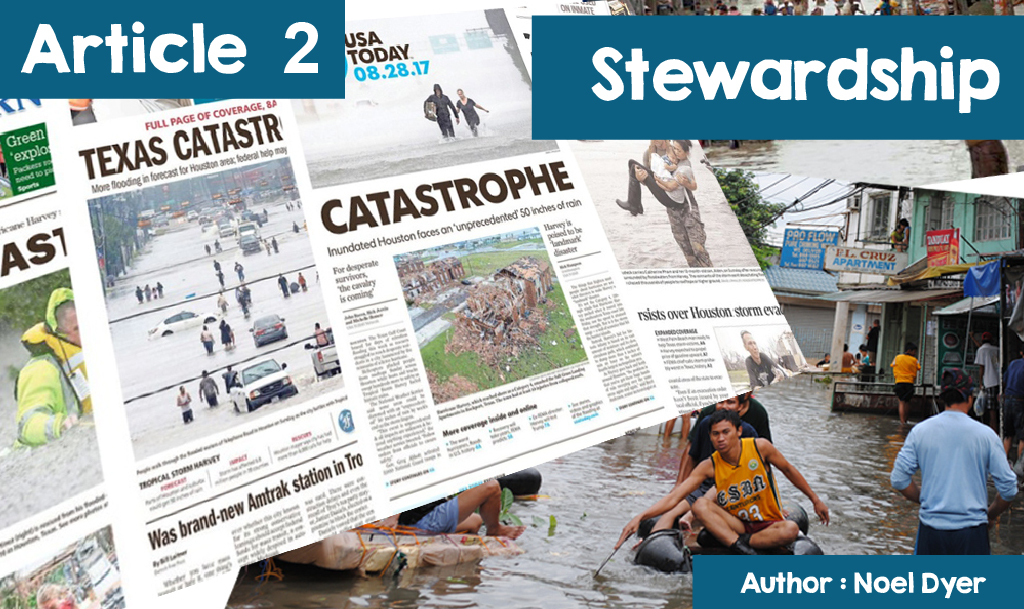|
|
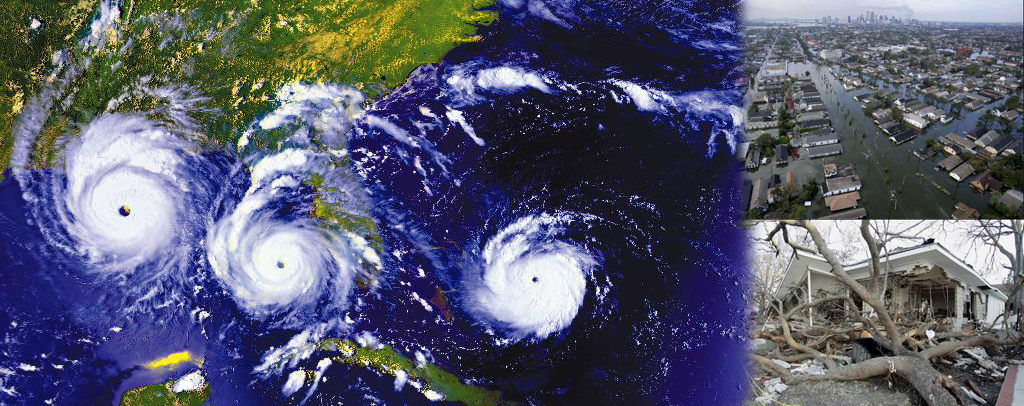
|
Man's responsibility
Looking at the news gives us the feeling that natural disasters are happening constantly. In the summer of 2017, one-third of Bangladesh's land was flooded with fifteen hundred people losing their lives and millions of people losing their homes. The great state of Texas in the United States of America was hit by a hurricane.
60 people died and thousands were driven from their homes. A further hurricane threatened some of the Caribbean islands and the state of Florida. Here in Wales, too, there was more bad weather and less difference between seasons. It is no longer unusual to hear weather warnings and information about lanes and railways that have been closed due to storms and heavy rain.
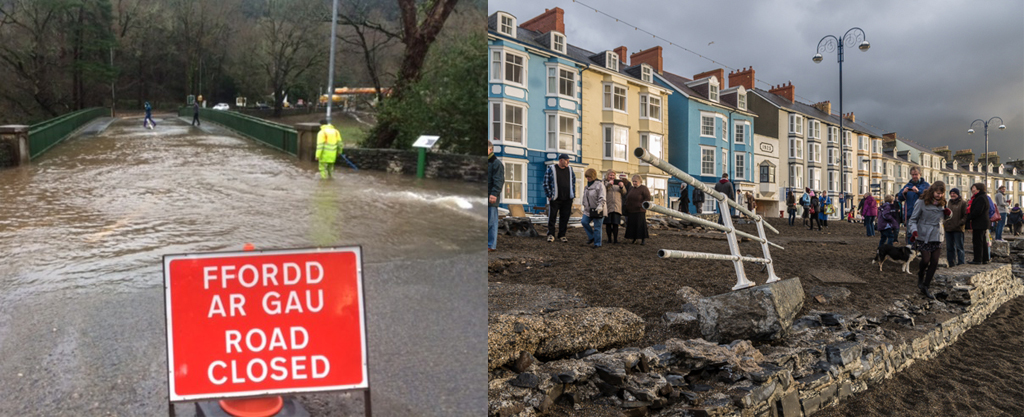
|
There have been many warnings over recent years concerning climate change. The change in the weather pattern, scientists and others say, would lead to less stable weather with more powerful storms causing damage and suffering. They say the reason behind this is the impact of global warming. World temperatures are rising steadily due to the impact of human activity.
This change has been caused by the rise in CO2 gases. This is a result of burning fuel in power stations to generate electricity, factory waste of all kinds, driving cars etc. Global warming has caused droughts in many places. Others were affected by storms and hurricanes. The ice in the north and south was melting and led to rising sea level, a factor that is putting communities on many islands and in many countries at risk. The countries of the world came together in Kyoto in 1997 and in Paris in 2015 to work together on climate change management.
S4C is responding this autumn (as many programmes on many channels have done for many years) with a new series of the television programme,
'Her yr Hinsawdd’ (The Climate Challenge) - 'In the first programme of the new series, we will follow Professor Siwan Davies to the colourful
mountains of Uganda to see how communities are adapting to coping with the effects of climate change '.
You can see a clip of the first programme in the Listen and Watch section.

|
THE CLIMATE CHALLENGE
Man's responsibility
The reasons for climate change are not widely agreed. Some argue that the world has experienced a cycle of natural cooling and warming over long periods of time. That said, there is a majority who argue that humanity has responsibility for climate change and that man must respond. Followers of the major world religions speak of this responsibility in terms of stewardship.
What is meant by man's stewardship of the earth?
Christianity and Stewardship
The story of the creation of the world in the Bible talks about man's domination over creation - e.g., "Replenish the earth and subdue it; rule over the fish of the sea, over the birds of the air, and over every living thing that move on the earth”.
These last words show that man has authority over the rest of creation. In the past, people thought that this gave them the freedom to do as they please with the earth and their resources.
From the industrial revolution onwards, there was a feeling that all the earth's resources were there for man to exploit for progress and trade. That it's not what Christians today think, realising how fragile the earth is.

|
Instead, Christians believe that God calls mankind to be stewards of the world that God created. This led to the mention of stewardship which is a God-given duty of man to care for the earth. Man must take care of the earth in order to pass it on to the next generation in good condition. Christians, as stewards, care for the earth on behalf of God. The planet does not belong to man - it must be passed on to the next generation.
The result is special responsibility.
The earth is God's property. Christians are in charge of it and have no right to pollute or overuse natural resources. All species of plants and animals must be cared for, so that they do not disappear forever. The land, rivers, seas and atmosphere must be kept pure.
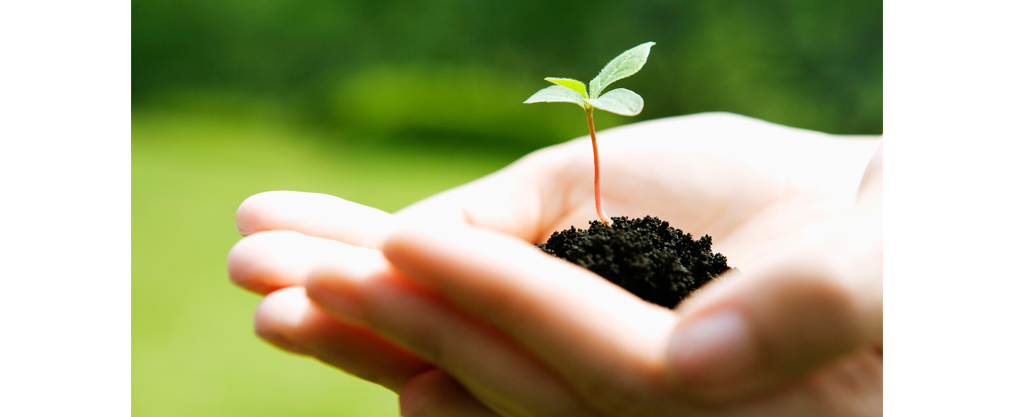
Islam and Stewardship
Muslims believe that Allah created the world, he owns and sustains it. Mankind is the pinnacle of creation with special authority - "He made you representatives to govern the earth and exalted some above him, so that He might prove the gifts which he gave you" (Qur’an) each person has a special function as a Khalifah - a steward who looks after the world on behalf of Allah.
The continuity of the planet depends on maintaining balance in the natural world. It is the responsibility of the Ummah (the brotherhood of Islam) to ensure this and avoid damaging the earth in any way. Muhammad gave an example, emphasising kindness to animals and care for the natural world, as they are all part of Allah's creation - "All the earth was created as a place of worship, pure and clean". On Judgment Day, Allah will ask all Muslims about their care of the world.
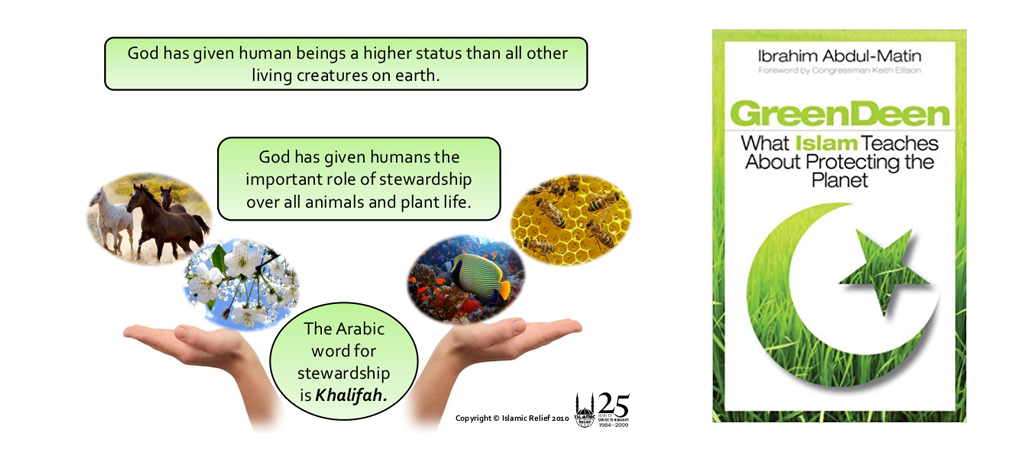
|
Buddhism and Stewardship
People did not care about the environment in the age of the Buddha and, therefore, he had no particular message on the subject. He referred to the need to respect the living conditions of all creatures and to prohibit the unnecessary killing of animals. Many branches of Buddhism emphasise the interrelationship of all life and the need to maintain a balance in life. The religion emphasises respect for life and the need to protect it.
This is based on the principle of ahimsa - the principle of 'doing no harm’ to anything. For a Buddhist, it is important not to act mindlessly to destroy the environment. Buddhists believe that their actions should benefit others. Selfishness and waste will damage the environment and are things to avoid.
Here are a few points that reflect Buddhist views today about the role of humanity as stewards.
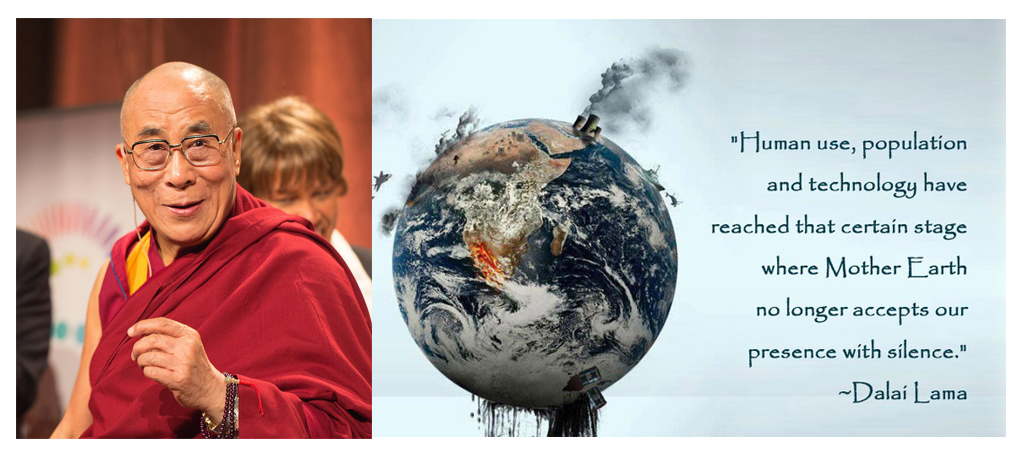
|
• The Dalai Lama said: 'We are the generation that is aware of great danger. We have the responsibility and the ability to act firmly before it's too late. Buddhists need to be aware of the damage they do to their environment so they can act differently '.
• Buddhists believe that simple living and respect for nature's cycle and balance is necessary to ensure continuity for the next generation. It is necessary to live without unnecessary waste or exploiting the world's resources.
• Many believe that we need to change the way we look at the world in order to live according to our needs. We must live with nature ensuring the continuity of the natural world.


